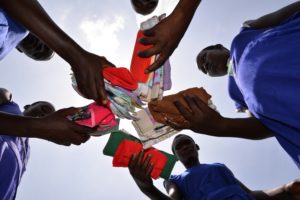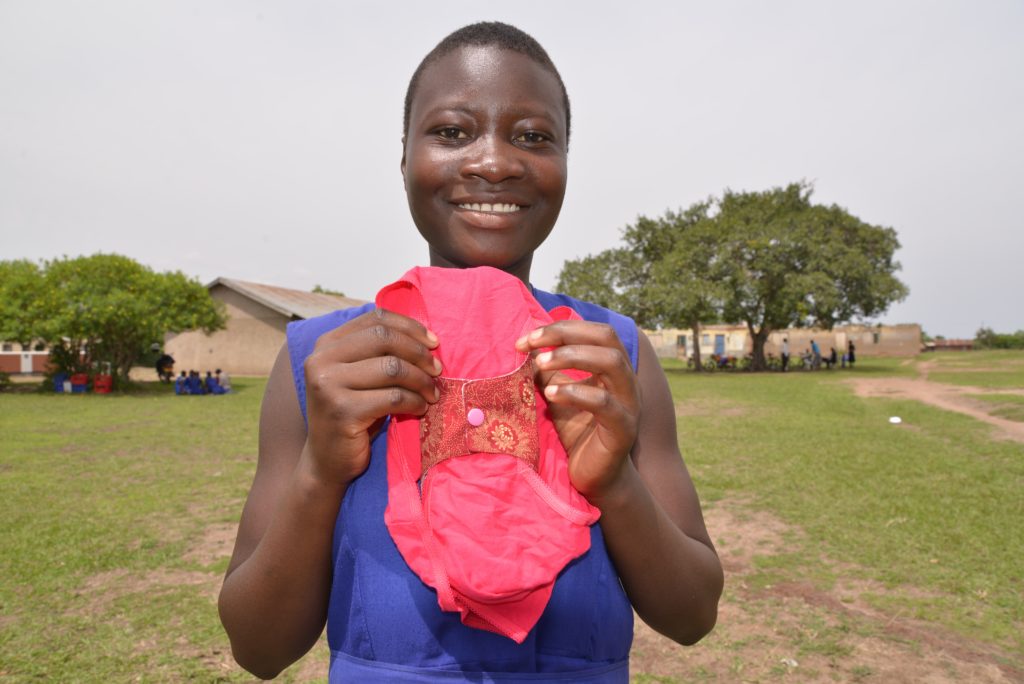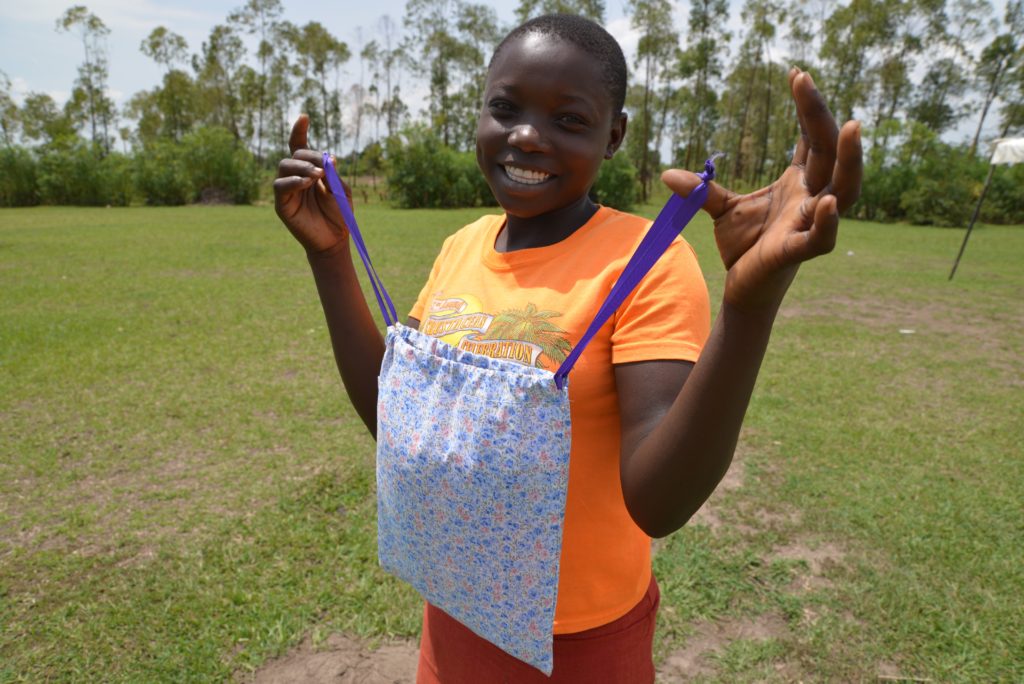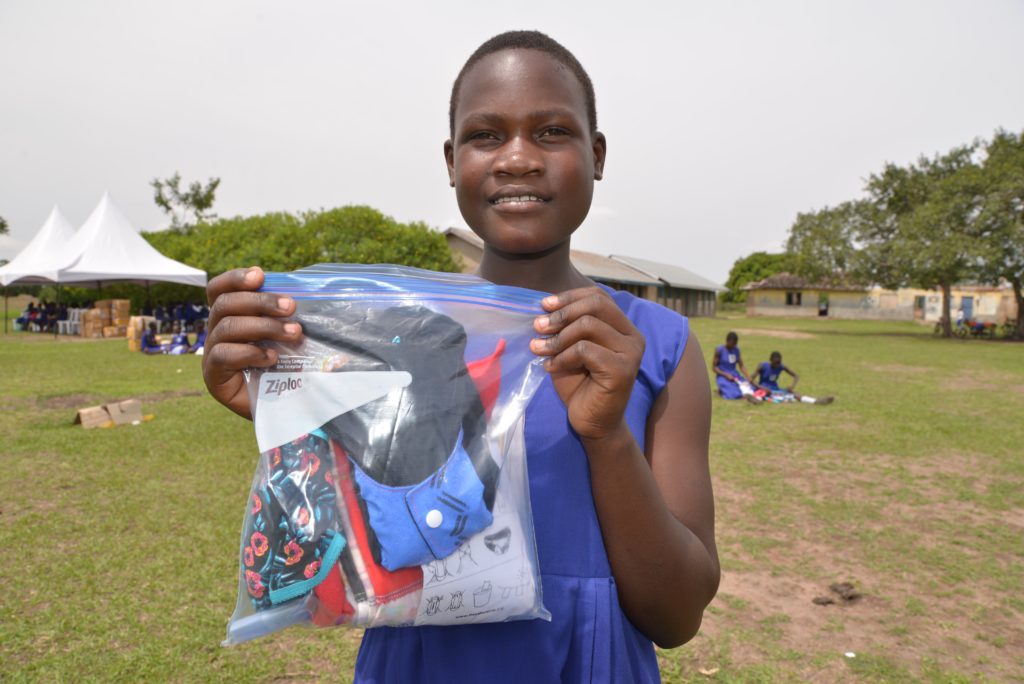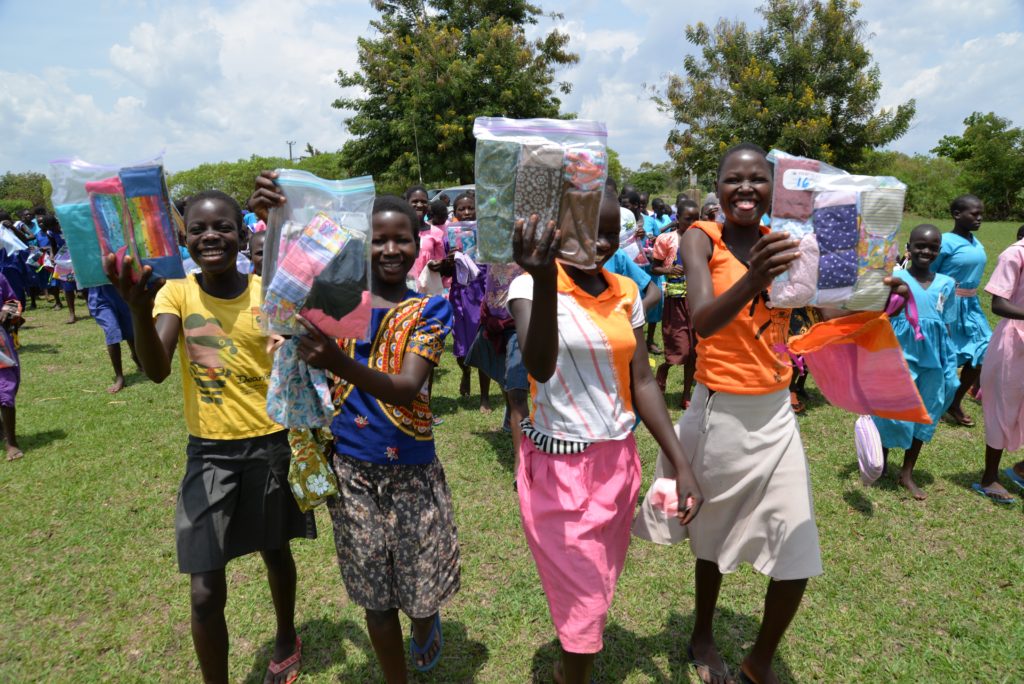Periods: they don't need to be a pain
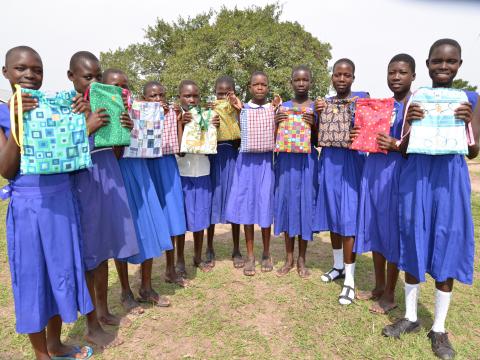
Do you remember the first time you went to school with your period? I do. At my school in country Victoria only one toilet in the far end of the bathroom had a bin to dispose of sanitary products. Worried that the other girls would notice I was visiting that particular toilet and guess I had my period, I tried to sneak inconspicuously as not to raise suspicion. Convinced that I was the only one who had started menstruating, I did my best to keep it a secret.
Shame around menstruation, like I had when I first got my period, is a common phenomenon around the world. In Australia, whilst periods can unfortunately still cause embarrassment, most girls can easily and affordably access pads and tampons that allow them to continue to attend school during their period, just like I did. For many girls in low income households in places such as Uganda shame around menstruation is common place. Limited knowledge around sexual and reproductive health, a lack of menstrual hygiene products access and an absence of sanitary toilet facilities in schools can have a serious impact on girls education. In a study conducted on Menstrual Hygiene Management (MHM) in Uganda, it was found that about half of the females reported missing 1-3 days of primary school per month.
Enabling girls to learn good menstrual hygiene practices is extremely important for keeping them in school. Reducing unnecessary absenteeism will continue to positively impact girls for the rest of their lives. Those who complete secondary school have been shown to have better maternal health and go on to have childen who are better educated and healthier. Additionally, one extra year in school can increase a woman’s lifetime earnings by 10-20%.
In 2016 World Vision Australia sent 500 Menstrual Hygiene Kits from Days for Girls to the Tororo district in Eastern Uganda. A Days for Girls kit contains underwear, two reusable sanitary pads, 8 liners to insert into the pad, a washcloth, a bar of soap and a zip lock bag; all packaged in a colourful drawstring bag.
Most of the girls who received the kits are from low socio-economic families. Knowledge is power, and the girls loved learning about what was happening to their bodies during menstruation. Feeling empowered to find that periods are actually a sign of good reproductive health. Being given the resources to then act on this newly acquired knowledge, the girls are now able to attend school during their period using their Days for Girls Kits.
Let’s meet a few of the girls:
Awor, 14
‘’I got my first period in December 2016. I was at home cooking and then all of a sudden I saw drops of blood. I quickly told my mum about it, and she told me that now I had become a fully-grown woman. She gave me some of her own pads that month. Since then she tries as much as she can to get me pads but sometimes we have no money at home. I feel guilty asking for pads when I know we don’t even have enough food. These new pads will take the pressure off my mum, and will allow us to spend money on other necessary items. At least she will now not have to worry about me when I have my period”.
Achieng, 16
Achieng comes from a large family of six children, her parents work in unstable jobs and the family often don’t have a steady income source. Items like sanitary pads are seen as a luxury in her family. In the past she used old clothes, old towels and rags when she got her period. “My flow is normally so heavy and lasts for several days. I used to tear my old clothes and use them as pads. I also use rags and old pieces of towel. Despite my best efforts, the blood would often leak onto my clothes. I never come to school when I had my period as I was afraid of staining my clothes in front of the other students. I also never had enough underwear to stay clean. This kit is something I never expected to get from anyone. I love its cover bag because it can fit in my backpack. I don’t think I will miss school again.”
Adikini, 14
Adikini comes from a large family of eight children. ‘’I first got my period in January this year. Luckily I was at home. I put some cloth inside my panties to absorb the flow. My skirt became bigger because of all the pieces of cloth I had stuffed inside my underwear. My parents were doing their best to buy pads for me, but they often didn’t have the money. When I didn’t have pads I would have to go to the senior female teacher at school and ask. Sometimes she doesn’t have any to give out though, which meant a lot of the girls stopped going to class. We would either sit in the shade under the tree in the yard or wouldn’t come to school at all. With these pads I’m sure girls will no longer miss classes. I am so happy that my friends and I received these kits’’.
Breaking the Taboo
It is estimated that around 3000 days of a woman’s life is spent menstruating- this is a significant period of time (pun intended). If women and girls are unable to carry on with going to school, playing sport and spending time with friends during their period their lives and educational outcomes will inevitably be negatively affected, impacting whether they continue in school and go onto graduate.
While providing sanitary hygiene products is one piece of the puzzle, breaking the taboo requires a multifaceted approach. In Uganda for example these kits were distributed into an existing education project that aimed to address barriers to good education. Within the project, Water, Sanitation and Hygiene (WASH) activities, including MHM, were identified as an important determinant of educational participation. Alongside distributing these kits, a number of other activities took place including advocacy for better MHM at a district government level, hygiene sensitization training for school students as well as training ‘school hygiene clubs’ on the importance of MHM. The project additionally involved producing the kits locally which had the added benefit of boosting livelihoods.
Reading the stories of girls like Achieng, Adikini and Awor helps me to reflect on my own first experiences of menstruation, and how my attitudes and knowledge have been enriched since then. While I may have initially experienced embarrassment, I now know that menstruation is a normal part of life, and unites me with other women all over the world. This simple biological fact should not hold women back. It should not become a barrier to achieving great results at school and achieving gender equality. Today, on Menstrual Hygiene Management Day, we celebrate women and girls around the world, reflect on the great work that’s being done,
Learn more about MHM and what World VIsion is currently doing.
